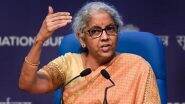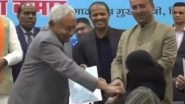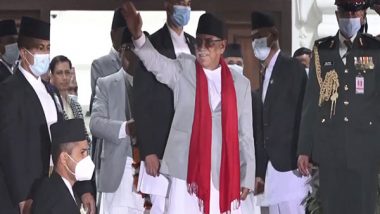Kathmandu, January 12: Pushpa Kamal Dahal, or Prachanda, a moniker he earned when he led a Maoist insurgency against the Nepalese monarchy, has grabbed the Prime Ministerial chair for the third time. Dahal's pre-poll alliance fell apart yet he was able to forge a new coalition with the parties he ran against in the run-up.
As per the arrangement, Dahal will be the Prime Minister for the first half of the five-year Prime Ministerial term with the remaining two and half years going to his alliance partner, the former Nepali Prime Minister, KP Sharma Oli.
Internal wranglings, alliance break-ups, and the political instability they cause have remained one of the major causes of concern for Nepali voters since 2008 when Nepal abolished its monarchy and declared itself a federal democratic republic.
The political battles have also taken a toll on the economic indicators of the country as Nepal has barely lived up to people's and financial bodies' expectations.
Although Dahal has made a commitment to double the per capita income of his country in the next decade, Nepal's economy finds itself in a tight spot. Several observers have said that Nepal needs to introduce radical changes to its economic policies.
"I think Nepal should not engage in any geopolitical tensions or geopolitical conflicts. It should engage with all major powers only on the economic front because that serves our national interest", says Political Commentator, Kamal Dev Bhattarai.
Another critical issue for Nepal is its foreign policy. The country's foreign policy has primarily progressed on the principle of tapping India-China trade and investment rivalry in the country to gain a strategic advantage in the region.
Dahal, an avowed communist said immediately after his swearing-in as Prime Minister that he would maintain friendly ties with both India and China. Observers, however, believe that Kathmandu may have to abandon its past strategy for an alliance with expansionist China is not sustainable.
Beijing's diplomacy in relation to its ties with smaller nations has been expansionist, coercive and exploitative. This Chinese-Nepalese dynamic led China to allegedly take control of a Nepalese village in 2020.
India, however, which has already diversified both its assistance and investment in Nepal, is a natural option for Kathmandu to align itself with. Indian Prime Minister, Narendra Modi, said that he was looking forward to further strengthening bilateral ties under the current Nepalese regime.
Over the years, India has empowered Nepal and has provided many forms of assistance, including financial and technological assistance. According to a study by the Indian think tank, Observers Research Foundation, over 150 Indian ventures were in operation in Nepal in the first quarter of 2022.
India has invested in manufacturing, banking, insurance, education, telecom, power, and tourism in the country. India and Nepal share a deep historical, political, and cultural connection with the people of the two countries not requiring any visa or prior permission to visit either country.
The two countries also inaugurated their first-ever passenger railway link in 2022, providing another boost to their ties. Nepal's new government may have its ideological leanings similar to China, however, the country would be wise to remain wary of Chinese diplomacy, which usually results in smaller countries falling into China's debt-trap policy.
"Beijing obviously wants to influence Kathmandu's decisions. Over the past few years, what we have seen is that China has expanded its political influence in Nepal. China is openly saying that it prefers a communist party-led government in Kathmandu", says Bhattarai.
Allegedly, China has even tried to stall development work that was to be pursued in the country with the United States 500 million USD assistance.
Will Nepal continue to choose to align itself with an expansionist China, or will Nepal embrace a model that is pro-people and is genuinely independent and sovereign in nature? With new leadership at the helm, it remains to be seen how Nepal moves ahead from here.
(The above story is verified and authored by ANI staff, ANI is South Asia's leading multimedia news agency with over 100 bureaus in India, South Asia and across the globe. ANI brings the latest news on Politics and Current Affairs in India & around the World, Sports, Health, Fitness, Entertainment, & News. The views appearing in the above post do not reflect the opinions of LatestLY)













 Quickly
Quickly











